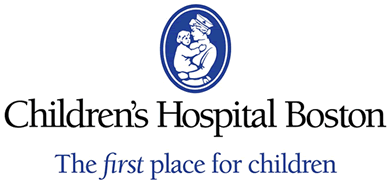Study of Metabolic Syndrome in Adolescent and Young Adult Survivors of Childhood Leukemia Who Have Undergone Stem Cell Transplant
| Status: | Archived |
|---|---|
| Conditions: | Cancer, Cancer, Blood Cancer, Cardiology, Endocrine, Leukemia |
| Therapuetic Areas: | Cardiology / Vascular Diseases, Endocrinology, Oncology |
| Healthy: | No |
| Age Range: | Any |
| Updated: | 7/1/2011 |
| Start Date: | April 2005 |
Metabolic Syndrome Following Transplant for Leukemia
RATIONALE: Gathering information about how often metabolic syndrome occurs in young
survivors of childhood leukemia who have undergone stem cell transplant may help doctors
learn more about the disease and the long-term effects of leukemia treatment. It may also
help improve the quality of life for future cancer survivors.
PURPOSE: This clinical trial is studying metabolic syndrome in adolescent and young adult
survivors of childhood leukemia who have undergone stem cell transplant.
OBJECTIVES:
- To determine the prevalence of metabolic syndrome in adolescent and young adult
survivors of childhood leukemia who have undergone hematopoietic stem cell
transplantation (HSCT) and compare the extent to which prevalence is higher in HSCT
survivors than in age- and gender-matched population norms derived from the Third
National Health and Nutrition Examination Survey (NHANES III).
- To evaluate the relationship between insulin resistance and risk factors associated
with metabolic syndrome (e.g., hypertension, obesity, hyperinsulinemia, and
dyslipidemia) as measured by euglycemic insulin clamp, fasting serum insulin, glucose,
lipids (total cholesterol, triglycerides, LDL-C, and HDL-C), blood pressure and
anthropometric measurements, and DEXA scan in these patients and compare to age- and
gender-matched population norms.
- To assess the extent to which prevalent obesity and insulin resistance are correlated
with other factors that have been identified in the causal pathway associated with the
development of metabolic syndrome and that may be altered after HSCT, including growth
hormone secretion, adipokines (adiponectin and leptin), and inflammatory mediators
(interleukin-6, tumor necrosis factor-α, and C-reactive protein).
- To evaluate the association of metabolic syndrome and early signs of impaired
endothelial function and cardiovascular changes.
- To evaluate health behaviors related to prevention of cardiovascular disease, diabetes,
and obesity, including a physical activity assessment, a dietary assessment, and a
health knowledge assessment that will be used in the analyses of metabolic syndrome,
growth hormone deficiency, and indicators of cardiovascular disease.
OUTLINE: Patients are stratified according to post-transplant follow-up period (2-9 years vs
10-15 years vs > 15 years).
Patients and their siblings undergo physical examination, a review of medical and family
history, and blood pressure and anthropometric measurements. Patients and their siblings
also undergo blood sample collection for laboratory studies (including analysis of
C-reactive protein and CBC; lipid profile and triglycerides; leptin and adipokines; free
thyroxine, TSH, IGF1, IGF3, and LH; and estradiol [females] or testosterone [males]); urine
sample collection for microalbumin determination; and other study procedures (including
euglycemic insulin clamp study; body composition and bone density [DEXA] study; bone-age
x-ray [for patients < 18 years of age]; and vascular studies). Patients also undergo growth
hormone stimulation testing.
Patients and their siblings complete questionnaires about their physical activity, dietary
habits, and health knowledge.
PROJECTED ACCRUAL: A total of 193 childhood leukemia survivors and 193 healthy siblings will
be accrued for this study.
We found this trial at
1
site
Children's Hospital - Boston Boston Children's Hospital is a 395-bed comprehensive center for pediatric health...
Click here to add this to my saved trials
